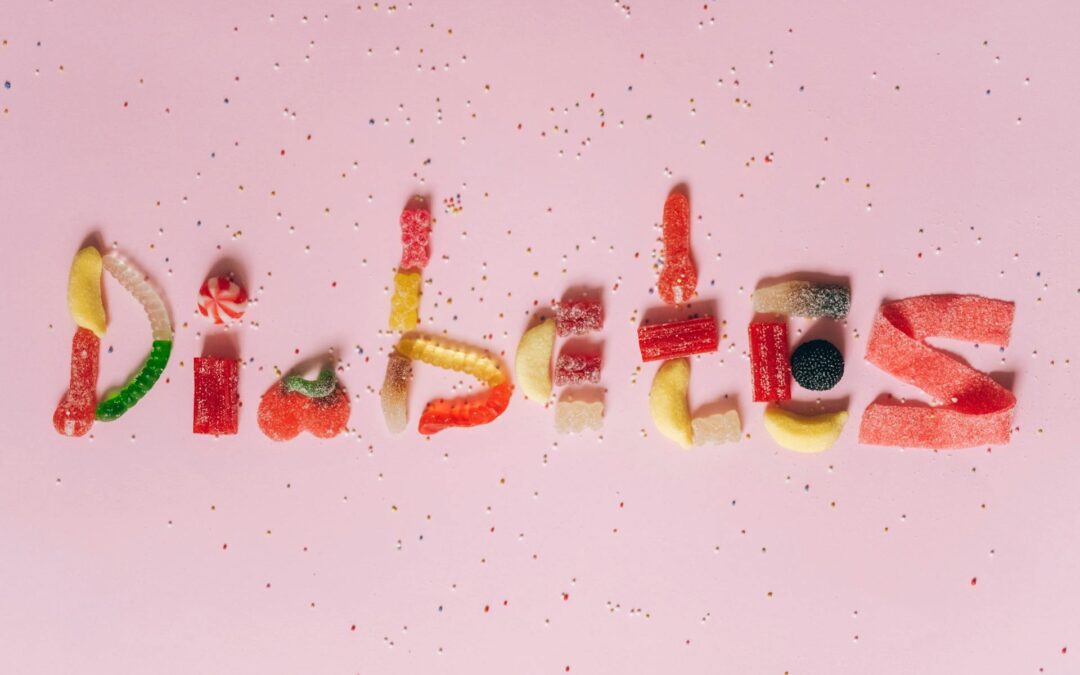Adopting a low-carb diet for mental clarity has gained widespread attention as a powerful way to enhance brain function, improve focus, and sharpen cognitive performance. By reducing carbohydrate intake, your body uses ketones—produced from fats—as a primary fuel source for the brain. This shift helps maintain steady energy levels, reducing brain fog and mental fatigue. Over time, a low-carb approach can improve immediate concentration and protect long-term cognitive health by reducing inflammation and supporting brain resilience.
What Are Carbohydrates, and How Do They Affect the Brain?
Carbohydrates are the body’s primary fuel source, broken down into glucose, which powers everything from muscle function to brain activity. However, while glucose is essential, consuming too many refined carbs can lead to blood sugar fluctuations that negatively affect mental clarity. These highs and lows cause energy dips, often called “brain fog,” which can severely impair cognitive function.
For many, the answer lies in reducing carbs and using fat and protein as more stable, longer-lasting energy sources. This is where the low-carb diet comes into play, as it helps minimize blood sugar spikes and offers the brain an alternative fuel: ketones. These are produced from fat stores and provide more sustained energy, keeping your brain sharp and focused.
Ketosis: The Brain’s Super Fuel
Ketosis occurs when the body runs low on carbohydrates and turns fat into ketones for energy. Studies have shown that ketones provide a more efficient and stable fuel source for the brain than glucose. Unlike glucose, which can cause a rollercoaster effect on energy levels, ketones ensure a steady, long-lasting energy supply, enhancing focus, mental clarity, and cognitive performance.
Benefits of Ketones for the Brain
- Steady energy levels: No more post-meal slumps or midday brain fog.
- Improved focus: By reducing inflammation, ketones support healthier brain function.
- Enhanced memory: Ketones protect neurons and boost long-term brain health.
How a Low-Carb Diet Enhances Mental Clarity
Stable Blood Sugar for Optimal Focus
On a standard high-carb diet, blood sugar levels spike and crash throughout the day, leading to fluctuations in energy and mental performance. This explains why many people experience a “sugar crash” after eating a high-carb meal, resulting in mental sluggishness. A low-carb diet stabilizes blood sugar levels, providing consistent energy that helps you stay sharp throughout the day.
Brain Inflammation and Cognitive Function
Inflammation in the brain is often linked to cognitive decline, memory loss, and overall poor mental function. Research has shown that low-carb and ketogenic diets help reduce inflammation in the brain. By lowering carb intake, the body produces fewer free radicals, which are known to cause oxidative stress, damaging neurons over time. This reduction in oxidative stress allows the brain to function more efficiently. (1)
The Science of Brain Fog and How Low-Carb Solves It
Brain fog refers to frustrating mental fatigue, where everything feels sluggish, from thoughts to memory recall. For many, brain fog results from blood sugar imbalances, a lack of proper nutrients, and inflammation. A low-carb diet can reduce or eliminate brain fog by addressing these root causes.
Causes of Brain Fog
- Blood sugar crashes: High-carb meals lead to a surge in blood sugar, followed by a sharp decline, resulting in energy slumps and poor cognitive function.
- Inflammation: High-carb diets often lead to higher levels of inflammation, impairing brain function.
- Lack of critical nutrients: Low-carb diets prioritize nutrient-dense foods that provide essential vitamins and minerals, further supporting brain health.
A low-carb diet can offer consistent mental clarity and cognitive sharpness by stabilizing blood sugar and promoting an anti-inflammatory environment.
How to Start a Low-Carb Diet for Brain Health
Transitioning to a low-carb diet isn’t just about cutting carbs; it’s about being mindful of the quality of your foods. A well-balanced, low-carb diet includes foods rich in healthy fats, fiber, and protein, which play a crucial role in brain health.
Step-by-Step Guide
- Choose the proper diet: Choose a low-carb diet that suits your needs. You can choose from keto, Atkins, or paleo—each has pros and cons depending on your goals.
- Focus on brain-boosting fats: Incorporate healthy fats, such as avocados, nuts, and fatty fish, which enhance cognitive function.
- Add nutrient-dense foods: Eat plenty of vegetables, particularly leafy greens and cruciferous vegetables, which provide essential nutrients like magnesium, vitamin C, and omega-3 fatty acids.
- Stay hydrated: Brain function can decline when dehydrated, so drink plenty of water, especially when transitioning to a low-carb diet.
- Monitor your progress: Keep a journal to track your mental clarity and cognitive performance. Write down how you feel at various times of the day to understand how your body is adjusting to the diet.
Foods to Include for Optimal Brain Health
- Fatty fish (rich in omega-3s)
- Eggs (a good source of choline, essential for brain function)
- Avocados (packed with healthy fats)
- Dark leafy greens (high in antioxidants and anti-inflammatory nutrients)
- Nuts and seeds (excellent sources of brain-boosting nutrients)
Real-Life Examples: People Who Benefited from Low-Carb Diets
Many individuals have experienced life-changing improvements in mental clarity and focus after switching to a low-carb diet. From busy professionals to students and athletes, the benefits are clear: low-carb eating supports long-lasting energy, better focus, and greater productivity.
Case Study: From Brain Fog to Mental Clarity
One particular example is Mark, a software engineer who struggled with brain fog and fatigue throughout his workday. After adopting a ketogenic diet, Mark found that his energy levels became consistent, and his focus improved dramatically. No more afternoon slumps or difficulty concentrating on complex tasks.
Success Story: Enhanced Cognitive Function
Jane, a 50-year-old business executive, experienced memory lapses and a lack of mental sharpness. Upon transitioning to a low-carb lifestyle, Jane significantly improved her ability to quickly retain information and solve problems. Her mental agility and overall cognitive function soared.
Addressing Challenges of a Low-Carb Diet for Brain Health
While the benefits of a low-carb diet for mental clarity are undeniable, some challenges may occur, particularly in the beginning stages.
Keto Flu and How to Avoid It
During the transition to a low-carb diet, especially keto, some people experience symptoms collectively known as “keto flu.”This includes fatigue, headaches, and irritability as the body adjusts to using fat as its primary fuel source instead of carbs. To minimize the effects of keto flu:
- Increase electrolyte intake: Ensure you consume enough sodium, potassium, and magnesium.
- Stay hydrated: Drink plenty of water to avoid dehydration.
- Ease into it: Gradually reduce your carb intake to give your body time to adjust.
FAQs: Low-Carb Diets and Cognitive Function
1. Does a low-carb diet improve memory?
Studies show that a low-carb diet, particularly one that promotes ketosis, can improve memory and cognitive function by providing the brain with a more efficient and stable energy source.
2. How long does it take to see the mental clarity benefits of a low-carb diet?
Mental clarity improvements can start within a few days to a week, but it may take up to a month to see the full benefits.
3. Are there risks to mental health on a low-carb diet?
Low-carb diets are safe for most people, but some may experience temporary symptoms like brain fog during the adjustment period. Ensuring proper nutrient intake and hydration can help mitigate these effects.
Part 2: Optimizing Your Diet for Long-Term Cognitive Health
Low-Carb Diet and Aging Brain
As we age, cognitive decline becomes a concern. Low-carb diets can slow this process by reducing brain inflammation and oxidative stress, promoting brain plasticity, and supporting long-term brain health. Research has shown that ketones may protect against age-related diseases like Alzheimer’s and dementia.
Scientific American has published studies on how ketogenic diets can delay neurodegenerative diseases.
The Role of Intermittent Fasting with Low-Carb for Mental Clarity
Combining intermittent fasting with a low-carb diet can amplify the cognitive benefits. Intermittent fasting helps the brain enter a deeper state of ketosis, further enhancing mental clarity and focus. By alternating periods of eating and fasting, you allow your brain to reset and rejuvenate.
The Bottom Line
“A low-carb diet offers a promising approach to improving mental clarity, enhancing focus, and protecting cognitive function in both the short and long term. By reducing carbohydrate intake, you encourage your body to rely on ketones—produced from fat—as a primary fuel source for the brain. This shift helps stabilize blood sugar levels, preventing the energy crashes associated with high-carb meals, and supports better brain performance.
Moreover, research suggests that low-carb diets may reduce inflammation and oxidative stress linked to cognitive decline. Over time, this dietary approach can contribute to sharper thinking, improved memory retention, and greater mental resilience. It is a sustainable way to support weight loss and metabolic health and safeguard your brain against age-related issues like dementia.
Whether you’re a professional looking to stay focused throughout the day or simply wanting to boost your brainpower, incorporating low-carb habits can offer significant mental and cognitive benefits. Remember that balance and consistency are essential, so listen to your body and adjust your diet according to your needs.”
Does this capture the tone and details you’re aiming for?







0 Comments